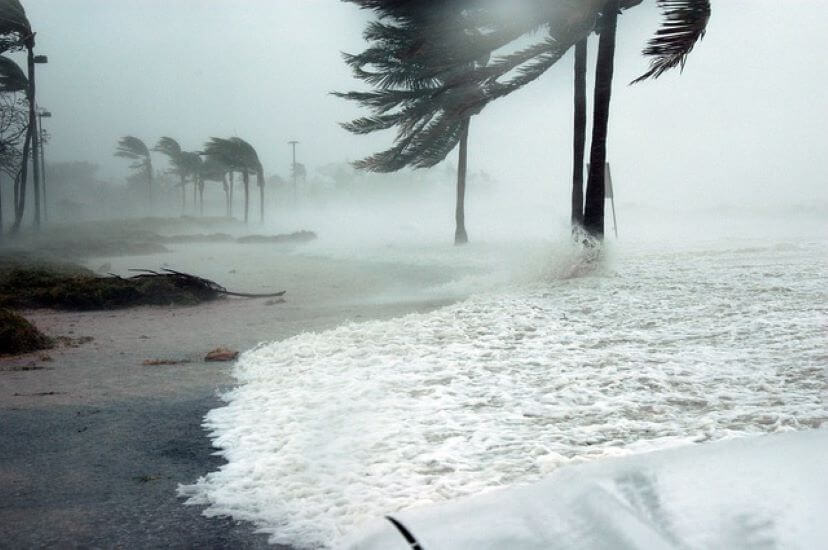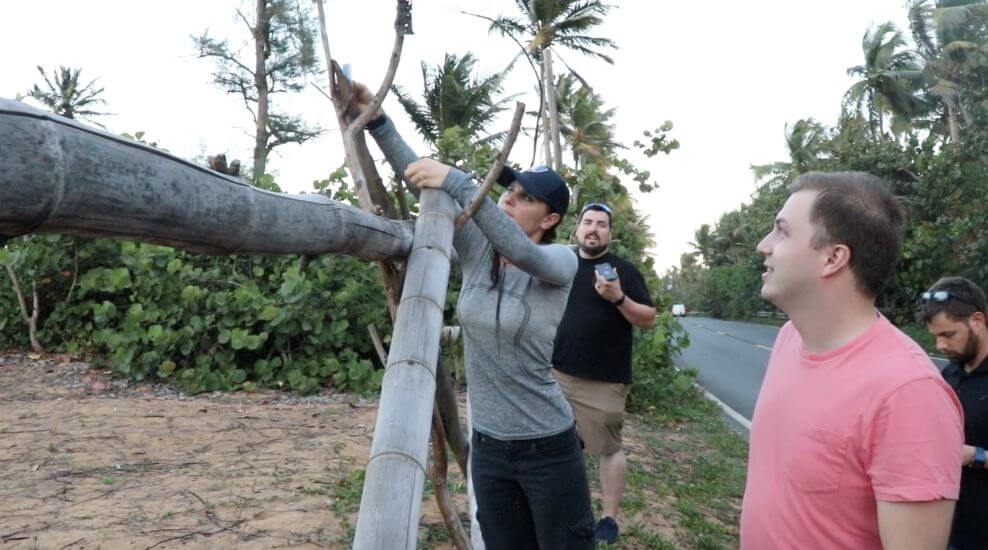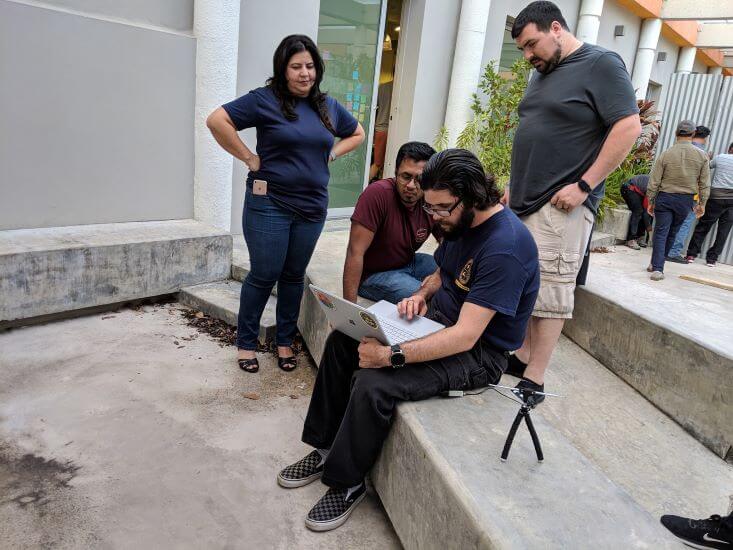
If there is one thing that gets me stoked about technology, it’s the ability for tech—specifically AI—to help people who are struggling. That’s why Call for Code is one of my favorite events, and I’m honored to partner again with IBM, David Clark Cause, UN Human Rights, and other leading organizations to support the event this year in IBM’s Call for Code 2019.
IBM’s Call for Code 2019 is an open event that challenges coders around the world to create sustainable solutions that help communities prepare for, respond to, or recover from natural disasters. This isn’t one of those competitions where developers get together to tinker and see what weird new things are possible with AI. This is a REAL LIFE, life-changing opportunity. IBM invests in the projects that have the greatest opportunity for helping those in need. If you win, you’ll have a chance to see your project come to life to help save human life.
Last Year’s Winner – Project OWL
For example, last year’s winner, Project OWL, is already up and running. The project was designed to keep victims connected to first responders and track everything response teams would need to know before, during, and after an emergency event. This involves everything from managing people and volunteers, to managing the distribution of supplies and the tracking of property damage for insurance purposes.

Because Project Owl relies upon connectivity, and access can be questionable in times of emergency, the team also developed a series of ducks, or “clusterducks,” that make access possible even when standard infrastructure is offline. Yes—they seem to have thought of everything. And now, they’re working to put it into action.
In March 2019, Project OWL launched its first large-scale deployment through the IBM Code and Response initiative. The team had encouraging results working out beta tests on mapping, automating documents, and standardizing tools so they can be used as code for open source. They’re also working to integrate drone data directly into the Project Owl dashboard. This is the type of solution IBM’s Call for Code is all about.
Watch this feature film of Project Owl’s pilot and see code turn into community action:
More than 25 people in six separate organizations came together to make the Project OWL deployment possible. These included representatives from IBM and IBM Corporate Service Corps (CSC), Information Technology Disaster Resource Center (ITDRC), the Governor of Puerto Rico, the Mayors of Isabela and Comerio, DroneAid, Engine-4, and local first responders and community groups.
As part of the testing, Project OWL deployed technology in five separate regions across the island of Puerto Rico, testing capabilities of the technology in several challenging geographies.
The regions were selected for testing as a result of their unique needs after Hurricane Maria as well as from recommendations of local Puerto Ricans. There was no predetermined infrastructure in each location, and the deployments required only OWL technology and a cellular connection to transmit network activity to the world wide web.

Each region required a different deployment based on topology, weather, foliage, and building infrastructure. Each network consisted of a unique mesh architecture. At each regional deployment network, activity was monitored in OWL software. Any messages sent by individuals on the ground through the network were sent into cloud databases through “PapaDucks.” This information and the health of Ducks was recorded and analyzed in the cloud. Any individual on the ground could use the network provided by Project OWL through a standard smartphone by connecting to the generated WiFi network. Once connected, a captive portal automatically deploys on the device asking for more information about the individual’s situation and needs.
Through this interface, Project OWL collected over 6,000 data points proving the ability of this technology to operate at scales large enough to support disaster relief. The test also allowed the team to recognize some challenges that will be tackled on the next deployment.
Last year, more than 100,000 developers participated in Call for Code, submitting more than 2,500 potentially life-saving apps. The top projects from IBM’s Call for Code 2019 will be supported, just like Project OWL, through its journey as part of Code and Response.
This Year’s Competition
This year’s competition focuses on individual health and community well-being during and after these events. The intensity and frequency of natural disasters is increasing, and Call for Code really needs you to participate. Not only is this your opportunity to use your talent for the greater good, it’s also a chance for you as a developer to win $200,000 and receive support from the Linux Foundation and IBM to deploy your solution on the ground and make a real impact.
The deadline to participate is July 29, 2019. What are you waiting for? Visit the Call for Code 2019 website now to get involved now.
This post was brought to you by IBM Global Technology Services. For more content like this, visit IT Biz Advisor.
Daniel Newman is the Principal Analyst of Futurum Research and the CEO of Broadsuite Media Group. Living his life at the intersection of people and technology, Daniel works with the world’s largest technology brands exploring Digital Transformation and how it is influencing the enterprise. From Big Data to IoT to Cloud Computing, Newman makes the connections between business, people and tech that are required for companies to benefit most from their technology projects, which leads to his ideas regularly being cited in CIO.Com, CIO Review and hundreds of other sites across the world. A 5x Best Selling Author including his most recent “Building Dragons: Digital Transformation in the Experience Economy,” Daniel is also a Forbes, Entrepreneur and Huffington Post Contributor. MBA and Graduate Adjunct Professor, Daniel Newman is a Chicago Native and his speaking takes him around the world each year as he shares his vision of the role technology will play in our future.

